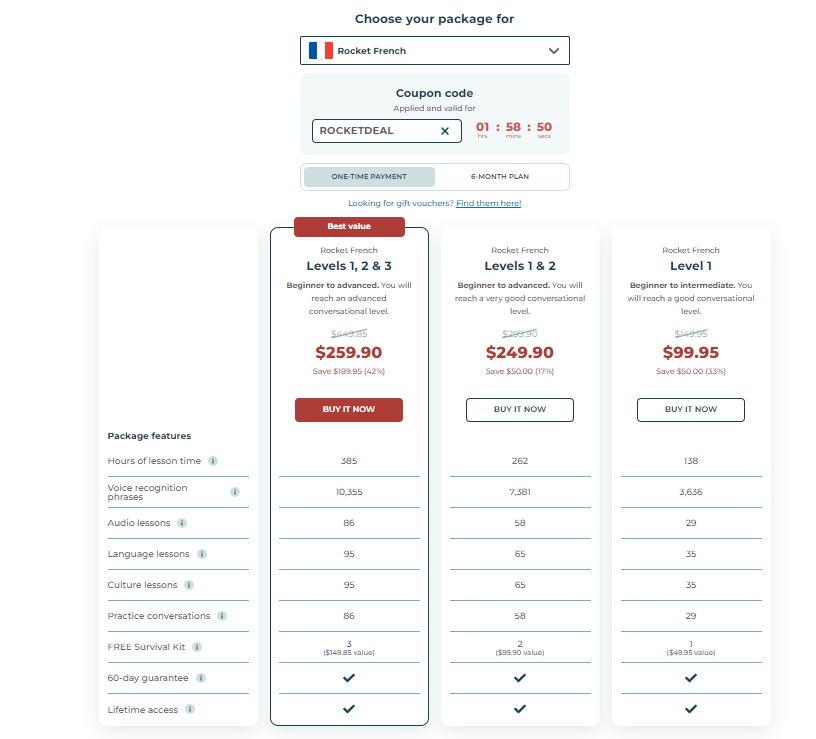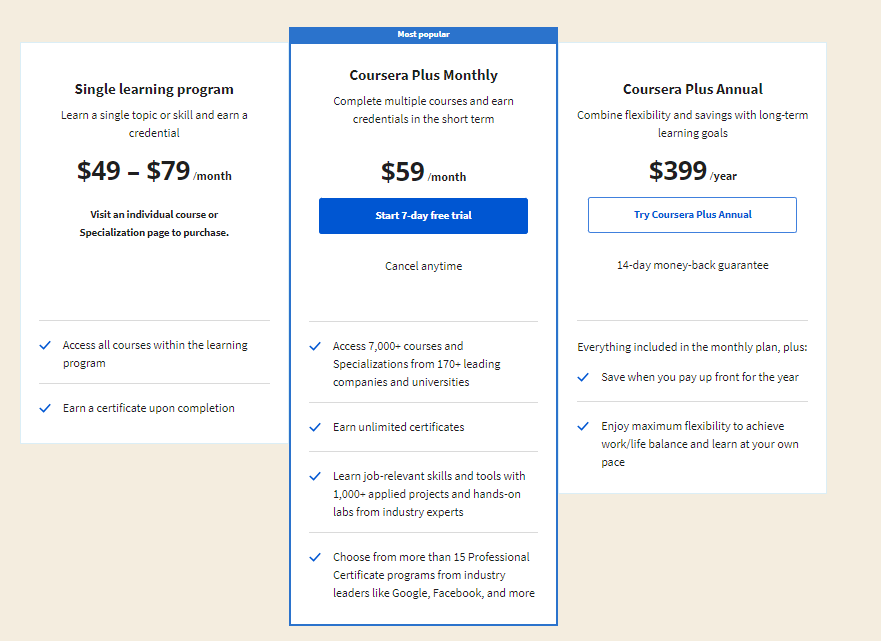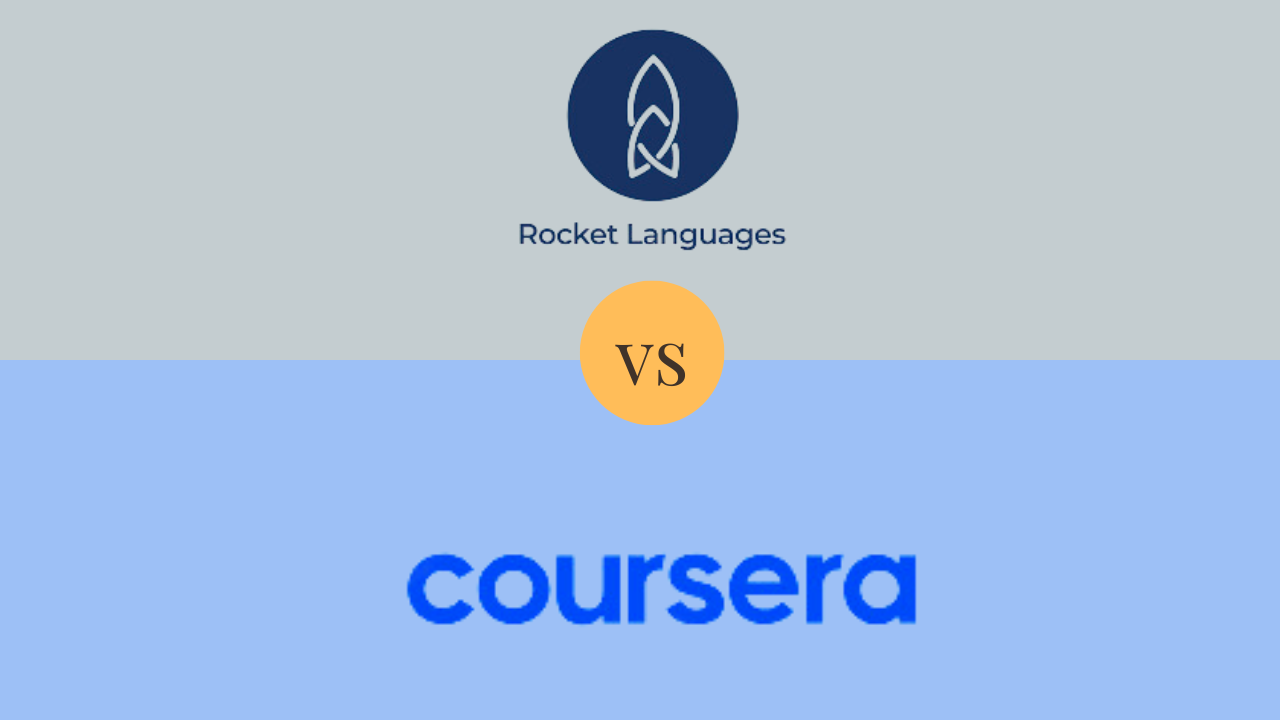Embark on your second language acquisition journey with confidence as we compare Rocket Languages vs Coursera. When embarking on the journey of second language acquisition, choosing the right learning platform is crucial for success. In this comprehensive comparison of Rocket Languages vs Coursera, we delve into the features, teaching methodologies, pricing structures, and certification options of these two prominent language learning platforms. By exploring the strengths and differences between Rocket Languages and Coursera, you’ll gain valuable insights to help you make an informed decision tailored to your language learning goals and preferences. Let’s dive in and discover which platform is the perfect fit for your language learning journey.
Course Structure and Content
When it comes to choosing a language learning platform, understanding the course structure and content is crucial. In this section, we will compare Rocket Languages and Coursera, highlighting how each platform designs its courses and the type of content they offer.
Rocket Languages
Rocket Languages focuses on practical language skills through interactive audio lessons, cultural insights, and a variety of exercises. Each course is designed to take learners from beginner to advanced levels, emphasizing conversational skills and real-life applications.
Audio Lessons: The core of Rocket Languages’ structure lies in its interactive audio lessons, which are typically 20-30 minutes long. These lessons are designed to help learners understand and speak the language in real-world scenarios. The audio format makes it easy for users to practice speaking and listening on the go.
Cultural Insights: Rocket Languages also incorporates cultural lessons that provide context and deeper understanding of the language. These insights help learners appreciate the nuances and etiquette of the language they are studying.
Interactive Exercises: To reinforce learning, Rocket Languages includes various interactive exercises such as quizzes, flashcards, and games. These exercises are designed to improve vocabulary, grammar, and pronunciation.
Coursera
Coursera offers language courses developed by top universities and institutions. These courses are comprehensive and academic, providing a deep understanding of the language alongside practical skills.
University-Backed Courses: The courses on Coursera are created by renowned universities and language experts. This academic backing ensures that the content is high-quality and thorough, covering all aspects of language learning including grammar, vocabulary, and cultural context.
Diverse Content: Coursera’s courses include video lectures, reading materials, and interactive assignments. These elements provide a well-rounded learning experience that caters to different learning styles. The inclusion of peer-reviewed assignments and community discussions also enhances the learning process by enabling interaction with other learners.
Certification: Upon completing a course on Coursera, learners can earn a certificate from the partnering institution. This certification can be a valuable addition to a resume or professional profile, highlighting the learner’s proficiency and commitment.
Comparison
While Rocket Languages offers a more practical and interactive approach with its audio lessons and cultural insights, Coursera provides a structured, academic experience with courses developed by top-tier universities. Rocket Languages is ideal for learners who want to focus on conversational skills and real-life applications, whereas Coursera suits those seeking comprehensive academic knowledge and official certification.
Teaching Methodology
Understanding the teaching methodology of a language learning platform can help you determine which one aligns best with your learning style. In this section, we compare the teaching methodologies of Rocket Languages vs Coursera, providing insights into how each platform approaches second language acquisition.
Rocket Languages
Rocket Languages employs a practical, hands-on teaching methodology that focuses on interactive learning and real-life application.
Interactive Audio Lessons: At the core of Rocket Languages’ methodology are its interactive audio lessons. These lessons are designed to simulate real-life conversations, allowing learners to practice speaking and listening skills in practical contexts. Each lesson encourages active participation, which helps reinforce language retention.
Spaced Repetition: Rocket Languages uses spaced repetition techniques in its exercises. This approach ensures that learners regularly review vocabulary and grammar points at intervals, aiding long-term memory retention. Spaced repetition is particularly effective in solidifying foundational language skills.
Cultural Integration: Understanding cultural nuances is a key part of language learning. Rocket Languages integrates cultural lessons within its courses, offering insights into the customs, traditions, and social norms of the target language. This cultural context enriches the learning experience and helps learners use the language appropriately in different scenarios.
Interactive Exercises and Games: To keep learners engaged, Rocket Languages includes various interactive exercises and games. These activities are designed to be fun and challenging, reinforcing what learners have studied in the audio lessons. This blend of interactivity and repetition enhances learning outcomes.
Coursera
Coursera adopts an academic, comprehensive approach to language learning, leveraging the expertise of top universities and institutions.
Expert-Led Instruction: Courses on Coursera are developed and taught by professors and language experts from leading universities. This ensures that the content is academically rigorous and of high quality. The structured curriculum is designed to provide a deep understanding of the language, covering all aspects from grammar to cultural nuances.
Multimedia Content: Coursera uses a variety of multimedia content, including video lectures, readings, and interactive assignments. Video lectures provide visual and auditory learning, making complex concepts easier to understand. Interactive assignments and quizzes allow learners to apply what they have learned and receive immediate feedback.
Peer Interaction: One of the strengths of Coursera’s methodology is the inclusion of peer-reviewed assignments and community discussions. These features enable learners to interact with peers from around the world, providing opportunities for collaborative learning and diverse perspectives. Engaging with a learning community can enhance motivation and provide valuable feedback.
Self-Paced Learning: Coursera offers flexibility with self-paced courses, allowing learners to progress at their own speed. This flexibility is ideal for learners with varying schedules and learning paces, making it easier to fit language study into their daily routines.
Comparison
When comparing the teaching methodologies of Rocket Languages vs Coursera, it becomes clear that each platform has distinct strengths:
- Rocket Languages focuses on interactive, practical learning with an emphasis on conversational skills and cultural integration. Its methodology is well-suited for learners who prefer a hands-on, engaging approach.
- Coursera offers an academic, structured learning experience led by experts, with comprehensive content and peer interaction. This methodology is ideal for learners seeking a deep, thorough understanding of the language, along with the flexibility to learn at their own pace.
By understanding the differences in teaching methodologies between Rocket Languages vs Coursera, learners can choose the platform that best aligns with their learning style and goals.
Pricing and Subscription Models
Pricing and subscription models are crucial factors to consider when choosing a language learning platform. In this section, we will compare Rocket Languages vs Coursera, detailing the cost structures and subscription options of each platform.
Rocket Languages
Rocket Languages offers a straightforward pricing model with several purchasing options, catering to different learning needs and budgets.
One-Time Purchase: Rocket Languages provides a one-time purchase option for each language course. This allows learners to pay a single fee for lifetime access to all course materials and updates. Prices vary depending on the language and level, but generally, the cost is around $99.95 per level, with discounts available for purchasing multiple levels at once.
Free Trial: Rocket Languages offers a free trial that includes access to selected lessons and features. This trial allows prospective users to experience the platform and evaluate its suitability before committing to a purchase.
Money-Back Guarantee: To ensure customer satisfaction, Rocket Languages provides a 60-day money-back guarantee. If users are not satisfied with their purchase, they can request a full refund within 60 days of purchase.

Coursera
Coursera’s pricing model is more diverse, offering multiple subscription options and varying costs depending on the course and institution.
Individual Course Purchase: Learners can purchase individual courses, with prices typically ranging from $49 to $79. This option provides access to all course materials, including video lectures, readings, and assignments, for the duration of the course.
Subscription Plans: Coursera offers a subscription model called Coursera Plus, which provides unlimited access to over 7,000 courses, specializations, and professional certificates. Coursera Plus is available for $59 per month or $399 per year, offering significant savings for learners who plan to take multiple courses.
Free Courses: Coursera also provides a selection of free courses, allowing learners to access course materials without any cost. However, free courses typically do not include graded assignments or certification upon completion.
Financial Aid: For those who need financial assistance, Coursera offers financial aid and scholarships for eligible learners. This ensures that cost is not a barrier to accessing high-quality education.

Comparison
When comparing the pricing and subscription models of Rocket Languages vs Coursera, several key differences emerge:
- Rocket Languages offers a one-time purchase model with lifetime access, making it a cost-effective choice for learners who prefer to pay once and own the course permanently. The free trial and money-back guarantee add to its appeal.
- Coursera provides flexible payment options, including individual course purchases and a subscription model (Coursera Plus), which is ideal for learners who wish to access multiple courses. The availability of free courses and financial aid makes Coursera accessible to a broader audience.
By understanding the pricing and subscription models of Rocket Languages vs Coursera, learners can choose the platform that best fits their budget and learning needs.
Certification and Accreditation
Certification and accreditation can be important considerations for learners who want to showcase their language skills for academic or professional purposes. In this section, we will compare Rocket Languages vs Coursera, focusing on the certification and accreditation options available on each platform.
Rocket Languages
Rocket Languages is designed primarily for self-paced, practical language learning and does not offer formal certifications or accredited courses. The platform’s focus is on helping learners achieve conversational fluency and practical language skills rather than providing credentials.
Completion Certificates: While Rocket Languages does not offer formal accreditation, it does provide completion certificates for each course level. These certificates can be a motivational tool and a way to mark progress, but they do not carry the same weight as accredited certificates from educational institutions.
Focus on Practical Skills: The lack of formal certification is balanced by Rocket Languages’ emphasis on practical, real-world language skills. For learners who are primarily interested in improving their conversational abilities and cultural understanding, Rocket Languages offers a robust and effective learning experience.
Coursera
Coursera, on the other hand, offers courses developed by top universities and institutions, providing formal accreditation and recognized certifications.
University-Backed Certificates: Upon completing a course or specialization on Coursera, learners can earn a certificate from the partnering institution. These certificates are often recognized by employers and educational institutions, adding value to a learner’s resume or professional profile.
Professional Certificates and Specializations: In addition to individual courses, Coursera offers professional certificates and specializations. These multi-course programs provide in-depth knowledge and skills, often culminating in a capstone project. Completing these programs can enhance career prospects and demonstrate a higher level of expertise.
Accredited Degrees: Coursera also offers fully accredited online degrees in collaboration with leading universities. These degree programs cover a range of subjects, including language studies, and provide a rigorous academic experience equivalent to on-campus programs.
Comparison
When comparing certification and accreditation options on Rocket Languages vs Coursera, it’s clear that each platform serves different needs:
- Rocket Languages is best suited for learners who want to focus on practical language skills without the need for formal certification. The platform’s completion certificates are useful for personal milestones but are not accredited.
- Coursera offers a wide range of accredited certificates and professional credentials from top universities, making it ideal for learners who want formal recognition of their skills. These certifications can enhance professional and academic opportunities.
By understanding the differences in certification and accreditation between Rocket Languages vs Coursera, learners can choose the platform that best aligns with their goals, whether they seek practical language skills or formal credentials.
Conclusion and Recommendation: Rocket Languages vs Coursera
Choosing the right language learning platform is a significant decision that can impact your learning journey and ultimate success in acquiring a second language. In this comparison of Rocket Languages vs Coursera, we’ve explored the key features, strengths, and differences between these two platforms.
Rocket Languages excels in providing a practical, hands-on learning experience focused on conversational skills and cultural understanding. With interactive audio lessons, cultural insights, and engaging exercises, Rocket Languages offers an immersive and effective approach to language learning. While it may not offer formal certification, its emphasis on practical skills makes it an excellent choice for learners seeking real-world language proficiency.
Coursera, on the other hand, offers a diverse range of language courses developed by top universities and institutions. With accredited certificates, professional specializations, and even fully accredited online degrees, Coursera provides formal recognition of language proficiency that can enhance career prospects and academic opportunities. Its structured, academic approach is ideal for learners who prefer a comprehensive and rigorous learning experience.
Ultimately, the choice between Rocket Languages and Coursera depends on your individual learning goals, preferences, and priorities. If you prioritize practical language skills and flexibility, Rocket Languages may be the right choice for you. However, if you value formal certification, academic rigor, and the prestige of university-backed credentials, Coursera may better suit your needs.
Regardless of which platform you choose, both Rocket Languages and Coursera offer valuable resources and opportunities to enhance your language skills and achieve your language learning goals. We hope this comparison has provided useful insights to help you make an informed decision on your language learning journey.
Choose wisely, stay committed, and enjoy the journey of language acquisition with the platform that best fits your needs. Happy learning!
re you interested for email marketing tools ? If so, check out the below link for more information.https://blog.rxshopbd.com/convertkit-vs-getresponse/


Very good
I found the article informative
Informative post
Pingback: ConvertKit vs GetResponse 2024 - Which is the Best Email Marketing Tools - Rx Blog
Pingback: 8 Best Contact Forms For WordPress - Rx Blog
Pingback: GNC Creatine
Pingback: AVG Cleaner